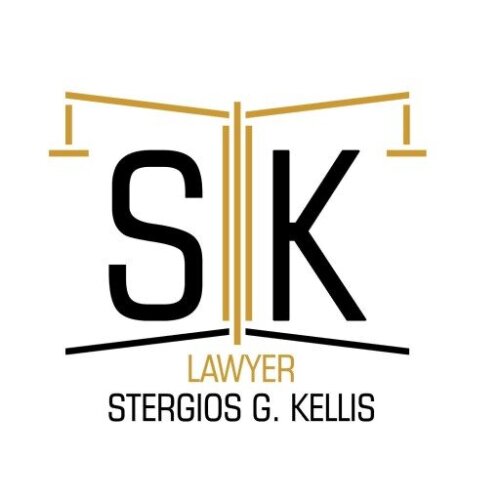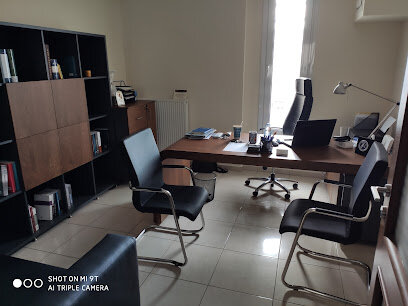Best Licensing Lawyers in Xanthi
Share your needs with us, get contacted by law firms.
Free. Takes 2 min.
List of the best lawyers in Xanthi, Greece
About Licensing Law in Xanthi, Greece
Licensing in Xanthi covers the permits and authorizations required to operate a business, practice a regulated profession, carry out construction works, host events, use natural resources, or otherwise engage in activities that the state or local authorities regulate. Greek licensing combines national legislation, European Union rules, and local administrative practice. In Xanthi the main contact points for licensing are municipal services, the Regional Unit administration, sectoral ministries and specialized authorities - depending on the activity involved. Many licenses require supporting technical reports from qualified professionals - for example architects, civil engineers, or environmental consultants - and clearance from safety, health and fire authorities.
Why You May Need a Lawyer
You may need a lawyer when licensing involves complex legal questions, disputes with authorities, significant financial exposure, or tight deadlines. Common situations include:
- Refusal or revocation of a permit - to advise on administrative appeals and court remedies.
- Complex regulatory compliance - for activities that require environmental, health, safety or heritage approvals.
- Commercial operations - when drafting or reviewing license-related contracts, lease clauses, franchise or distribution agreements linked to licensing conditions.
- Zoning and planning conflicts - to obtain variances, exceptions, or challenge local planning decisions.
- Licensing for regulated professions or transport - to navigate professional recognition, accreditation or vehicle/operator licensing.
- Preparing for inspections and enforcement actions - to limit penalties or negotiate corrective plans.
Local Laws Overview
Key aspects of local licensing law that affect applicants in Xanthi include the following:
- National framework with local implementation - Greece sets the main licensing rules through national laws and ministerial decisions; municipalities and regional authorities apply these rules locally and handle many permit procedures.
- Town planning and building permits - construction, renovations and change-of-use activities require town planning clearance and building permits from municipal planning departments and qualified technical oversight.
- Business establishment and operation - opening shops, restaurants, cafés, hotels and other activities commonly requires a set of approvals - business registration, operating license, health and hygiene permits for food businesses, waste management arrangements, and sometimes fire safety approval.
- Environmental and land-use controls - certain projects need environmental impact assessments or environment-focused permits issued by regional or national bodies.
- Regulated professions and public safety - professions such as doctors, engineers and lawyers are regulated by their professional chambers; venues with public gatherings often require fire service and police clearances.
- Administrative procedure and remedies - administrative decisions are typically subject to internal review, administrative appeal and ultimately judicial review before administrative courts. Deadlines and procedural steps matter, so timely action is important.
- EU influences - EU directives and rules affect recognition of professional qualifications, state aid, environmental standards and free movement of services. These can alter how national licensing rules are interpreted and applied.
Frequently Asked Questions
How do I apply for a business license in Xanthi?
Start at the Municipality of Xanthi or the relevant municipal department that covers the activity - trade, catering, tourism, transport, etc. You will typically need to register your business activity with the tax authorities, prepare technical and health-safety documentation, and submit an application with supporting documents prepared by qualified professionals. Procedures and required documents vary by sector and scale of activity.
How long does the licensing process usually take?
Times vary by permit type and complexity - from a few weeks for simple administrative approvals to several months for building permits or projects requiring environmental assessments. Delays can occur when additional technical reports, consultations with other agencies, or public notices are required.
What documents and professionals will I need for a building permit?
Typical requirements include architectural plans, structural calculations, a certificate of ownership or lease, proof of tax compliance, and technical reports signed by licensed engineers or architects. Local regulations may also require a topographic survey or soil study depending on the project.
Can a foreign national open a business in Xanthi?
Yes. EU citizens generally have the right to set up a business on the same terms as Greek nationals. Non-EU nationals face additional immigration and residency requirements in addition to standard licensing rules. You will also need to register for tax purposes and comply with any sector-specific rules.
What should I do if my license application is rejected?
Review the written reasons for the refusal and the legal and factual basis cited by the authority. Speak with a lawyer experienced in administrative law to assess grounds for internal review, administrative appeal or judicial review. Deadlines apply for appeals - act promptly to protect your rights.
Can I operate while my application or appeal is pending?
That depends on the type of activity and the authority involved. Some provisional or temporary permits may be available. In other cases operating without an issued license can lead to fines, forced closure and criminal liabilities for specific activities. Ask a lawyer or the authority whether provisional measures are available.
What penalties can be imposed for operating without a license?
Penalties range from administrative fines and orders to cease operations to mandatory closure, confiscation of equipment, or criminal charges in severe cases. Penalty severity depends on the sector, public safety risks and whether the breach was intentional or repeated.
How do I transfer or renew a license?
Transfer and renewal procedures depend on the specific license. Transfers often require submitting a new application or a formal request showing the transferee meets all licensing conditions. Renewals typically require proof of continued compliance and payment of any fees. Check with the issuing authority for local rules and time limits.
Do I need approvals from fire or health authorities for a hospitality or entertainment venue?
Yes. Venues that host the public usually need fire safety clearance and health or hygiene approvals for food service. These authorities evaluate capacity limits, escape routes, fire-fighting equipment, ventilation and sanitary conditions. Inspections are common before the final operating license is granted.
How can a lawyer help me through an administrative inspection or enforcement action?
A lawyer can accompany you during inspections, advise on immediate legal obligations, negotiate with inspectors, prepare corrective action plans, and represent you in administrative appeals or court proceedings. Early legal involvement often reduces penalties and helps reach pragmatic solutions.
Additional Resources
Municipality of Xanthi - the municipal departments responsible for town planning, trade and local permits are the first point of contact for many local licenses.
Regional Unit of Xanthi - regional authorities handle some sectoral permits and environmental assessments at the regional level.
Decentralized Administration of Macedonia and Thrace - coordinates certain environmental and administrative procedures in the region.
Ministry of Development and Investment - oversees national business licensing policies and commercial regulations.
Ministry of Environment and Energy - responsible for building, planning and environmental impact rules.
Technical Chamber of Greece - professional body for engineers that can advise on technical requirements and certified professionals.
Xanthi Bar Association - useful for finding lawyers experienced in administrative, commercial and property law.
Hellenic Fire Service - issues fire safety standards and clearances for venues that host the public.
Citizen Service Centers - assistance points that can help with document submission and information about administrative steps.
Next Steps
1. Identify the exact license or permit you need - clarify the activity classification and the competent authority. A short call or visit to the municipal office can clarify this.
2. Gather basic documents - proof of identity, property title or lease, company registration documents, and contact details for any professional consultants you will use.
3. Consult qualified professionals - licensed architects or engineers for construction and technical matters, an accountant for tax registration, and a lawyer for administrative or regulatory complexity.
4. Ask for a pre-application meeting - many local authorities offer guidance or a checklist to reduce delays and help you submit a complete file.
5. Prepare for inspections and compliance - ensure health, safety and fire requirements are addressed before applying to reduce the risk of refusal.
6. Engage a lawyer when there is uncertainty, a refusal, or risk of enforcement - legal advice early on can save time and money and protect your rights if administrative or judicial remedies become necessary.
7. Keep records - retain copies of all submissions, receipts, approvals and correspondence. These documents are essential for renewals, transfers and appeals.
If you need targeted legal advice, look for a lawyer with local Xanthi experience in licensing and administrative law, and arrange an initial meeting to map out the process, expected costs and likely timelines.
Lawzana helps you find the best lawyers and law firms in Xanthi through a curated and pre-screened list of qualified legal professionals. Our platform offers rankings and detailed profiles of attorneys and law firms, allowing you to compare based on practice areas, including Licensing, experience, and client feedback.
Each profile includes a description of the firm's areas of practice, client reviews, team members and partners, year of establishment, spoken languages, office locations, contact information, social media presence, and any published articles or resources. Most firms on our platform speak English and are experienced in both local and international legal matters.
Get a quote from top-rated law firms in Xanthi, Greece — quickly, securely, and without unnecessary hassle.
Disclaimer:
The information provided on this page is for general informational purposes only and does not constitute legal advice. While we strive to ensure the accuracy and relevance of the content, legal information may change over time, and interpretations of the law can vary. You should always consult with a qualified legal professional for advice specific to your situation.
We disclaim all liability for actions taken or not taken based on the content of this page. If you believe any information is incorrect or outdated, please contact us, and we will review and update it where appropriate.












